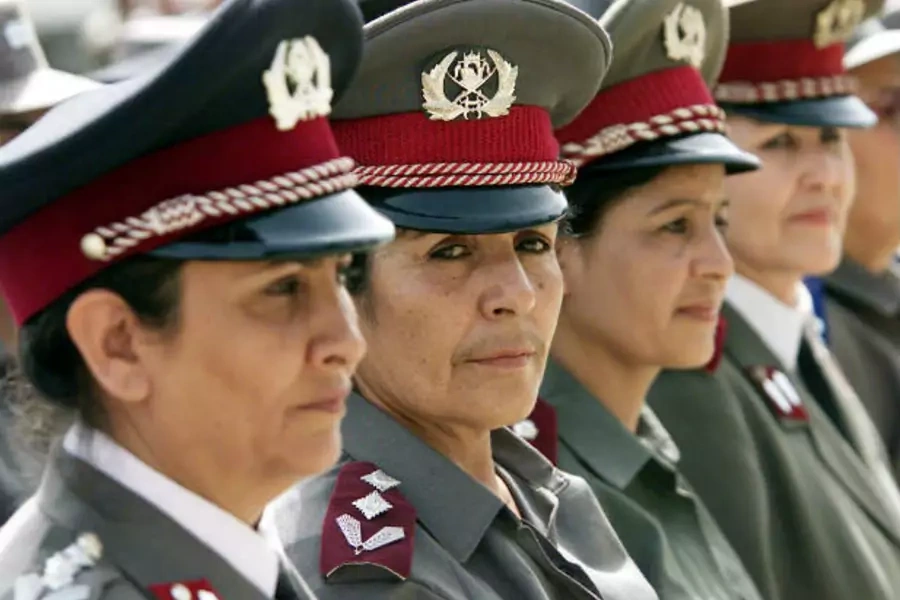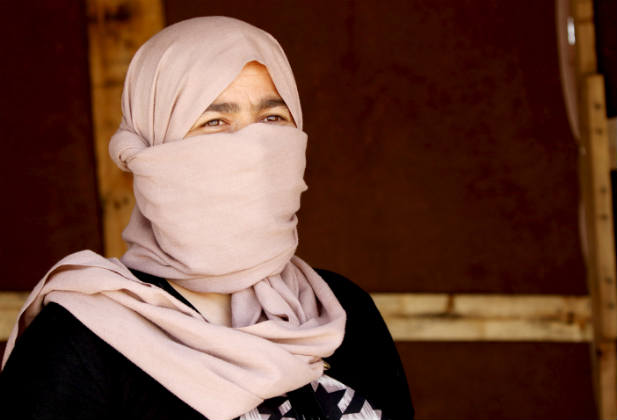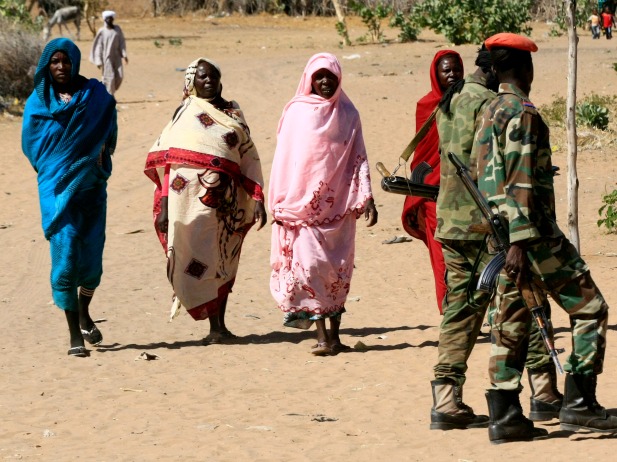Insights from a CFR Symposium on Women’s Contributions to Peace and Security Processes

At a December 2016 symposium entitled “Women’s Participation in Conflict Prevention and Resolution,” CFR hosted three panel discussions in Washington, DC, with government officials, civil society experts, and military and private sector leaders. Watch the videos or read the transcripts of the discussions on how women’s participation in conflict prevention and resolution advances security interests; countering violent extremism by engaging women; and securing peace by addressing conflict-related sexual violence. The following is an excerpt from the full report of the symposium.
“No society has ever successfully transitioned from being a conflict-ridden society to a developing society or better unless women were a part of the mainstream of that society,” retired General John Allen, former commander of the International Security Assistance Force in Afghanistan and former special presidential envoy to the global coalition to counter the self-proclaimed Islamic State (ISIS), recalled telling former Afghan President Hamid Karzai.
More on:
Research shows that including women in conflict prevention and resolution, as well as in efforts to reduce radicalization and violent extremism, generally leads to more secure peace. Yet despite years of good intentions and international commitments, the broader inclusion of women in conflict resolution is still plagued by obstacles, including a lack of funding, cultural and safety barriers, and a dearth of examples by the countries that most vocally preach the merits of inclusion.

The growth of the self-proclaimed Islamic State (ISIS), and the group’s reliance on women, has galvanized global attention on the bigger role that women can play in conflict situations, reflected Alaa Murabit of the advocacy group Voice of Libyan Women. But “it should not have taken ISIS using women as recruitment tools for us to say, wait, women have agency in conflict,” Murabit said. “Women are already on the front lines of countering all forms of violence in their communities, whether that be through negotiating ceasefires with proscribed groups [or] working with victims,” reflected Jayne Huckerby, director of the International Human Rights Clinic at Duke University School of Law. She suggested the more important question is “how we can be supportive of those particular efforts” and draw on them in broader diplomatic and security work.
As Allen reflected, it is critical to “empower civil society, give them a voice, and provide them funding and support, and sometimes physically provide them security . . . [because] solving the problems by military means is never going to do it. We’re going to be fighting forever.” He advised future administrations to marshal women’s leadership to make a difference at the “ground level,” in order to “defeat the circumstances that can change a young man or woman’s views, to radicalize them, and make them ultimately susceptible to extremist recruitment.”
Similar strategies are needed to address and prevent conflict-related sexual violence. Princeton Lyman, former U.S. special envoy to Sudan and South Sudan, suggested that “to address violence and to prevent sexual violence requires empowering local women. Where women are organized and nonviolent in major ways, they have an impact.”

A number of obstacles limits women’s ability to participate in peace and security processes. In many cases, the failure by Western governments or international organizations to include women in their delegations, military command, or police forces—not to mention in their own politics—can undermine the message that women’s inclusion is important. Murabit suggested that “leading by example is probably step number one.”
More on:
Another obstacle is physical and cultural barriers. Those promoting the inclusion of women should do more to protect them when they speak out, participants said. Lyman called for UN peacekeepers to “protect people who want to stand up,” as they have conspicuously failed to do in South Sudan. Donor countries and international organizations, some panelists noted, often harmfully dismiss a lack of local women’s participation by blaming so-called cultural differences. Involving women will, in some cases, require jettisoning cultural barriers that excuse the sidelining of women, panelists said.
Finally, money talks. U.S. government financing could be used as a lever, such as making financial assistance conditional on recipient countries boosting women’s inclusion in peacemaking and peacekeeping. Allen advocated making Defense Department money available for State Department–run programs, such as those that help women fight radicalization, thereby funding “the solution that fits the need.”
Given limits on what the government can do, there is a need for a greater effort from society at large, especially private-sector financial assistance, said Adnan Kifayat, a former advisor to the Department of Homeland Security on violent extremism and head of Global Security Ventures with the Gen Next Foundation. Society needs to “stand up . . . all the elements of national power,” Kifayat advised. That includes investing in the contributions that women make to preventing conflict and extremism around the world. Because, in the twenty-first century, unleashing the potential of 50 percent of the world’s population is not just the right thing to do—it is a strategic imperative to advance national security.
 Online Store
Online Store